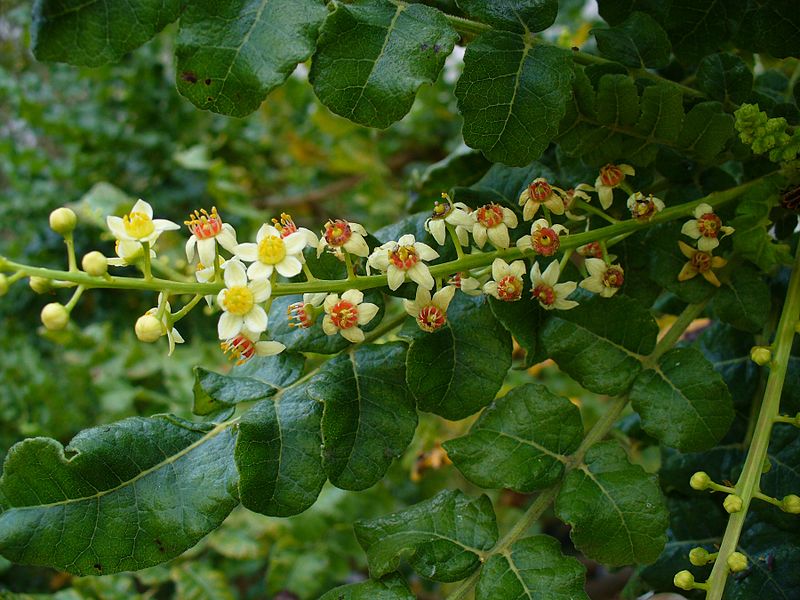
Unlocking the Healing Powers of Boswellia Sacra Frankincense: Nature’s Ancient Remedy
Awaken To The OneShare
The Healing Powers of Boswellia Sacra Frankincense: Nature’s Gift to Wellness
Boswellia sacra, more commonly known as frankincense, has been revered for centuries in traditional medicine, particularly in Middle Eastern, Ayurvedic, and African cultures. Its uses stretch far beyond spiritual practices, as this aromatic resin is increasingly being recognized for its profound healing properties. From supporting joint health to enhancing skin wellness, frankincense offers a holistic approach to maintaining balance and vitality.
What is Boswellia Sacra Frankincense?
Boswellia sacra is a species of tree native to the dry regions of the Arabian Peninsula, particularly Oman and Yemen. The tree produces a resin, which, when harvested, is what we know as frankincense. The resin is typically dried and then burned as incense, but it’s also used in essential oil form or as a supplement in modern herbal medicine.
Frankincense has been a cornerstone of ancient health remedies, with mentions in sacred texts such as the Bible, the Quran, and ancient Egyptian manuscripts. It was once as valuable as gold, traded across the Middle East and Asia for its prized healing properties. But what makes Boswellia sacra so unique in the world of natural remedies? Let's dive into its key benefits.
1. Anti-Inflammatory Effects
One of the most well-known benefits of frankincense is its potent anti-inflammatory properties. Studies have shown that compounds found in Boswellia sacra, particularly boswellic acids, can help reduce inflammation in the body. These acids inhibit the production of inflammatory molecules, providing relief for conditions such as arthritis, asthma, and inflammatory bowel diseases like Crohn's disease and ulcerative colitis.
For those suffering from joint pain, frankincense has been found to be effective in reducing swelling and discomfort, making it an excellent natural remedy for osteoarthritis and rheumatoid arthritis.
2. Promotes Joint Health
In addition to reducing inflammation, frankincense supports overall joint health. It helps maintain healthy cartilage and connective tissue, making it particularly beneficial for individuals looking to protect their joints as they age. Some research even suggests that frankincense may improve mobility and flexibility, enhancing overall quality of life for those dealing with chronic joint pain.
Frankincense is often used in combination with other joint-supporting herbs like turmeric, further boosting its healing power. Together, they provide a holistic approach to joint health and vitality.
3. Supports Respiratory Health
Frankincense is commonly used to promote respiratory health, thanks to its ability to clear the airways and reduce symptoms of asthma and bronchitis. The resin has natural expectorant properties, which help loosen mucus and ease breathing.
When inhaled, the smoke from frankincense has a calming effect on the respiratory system, making it a useful tool in managing coughs, congestion, and other respiratory issues. In fact, frankincense oil is often used in aromatherapy to promote deep, calming breaths and alleviate symptoms of seasonal allergies or sinus infections.
4. Enhances Skin Health
Beyond its internal benefits, frankincense is a powerful ally for skincare. The resin’s anti-inflammatory and antimicrobial properties make it an excellent treatment for acne, eczema, and other inflammatory skin conditions.
Boswellia sacra has been shown to promote cell regeneration, aiding in the healing of wounds, scars, and stretch marks. Many skincare products incorporate frankincense oil to reduce the appearance of fine lines and wrinkles, tighten skin, and promote a more youthful, radiant complexion.
5. Supports Mental Clarity and Mood
Frankincense is also a powerful mental tonic. Traditionally used in meditation and spiritual practices, it is believed to help calm the mind, reduce stress, and promote emotional well-being.
When used in aromatherapy, frankincense oil has a grounding effect that can reduce feelings of anxiety and promote clarity. It stimulates the limbic system in the brain, which controls emotions, helping to elevate mood and boost mental focus. Some studies even suggest that frankincense has antidepressant-like effects, helping to improve symptoms of depression and anxiety.
6. Promotes Digestive Health
In addition to its other benefits, frankincense is also used to support digestive health. It has mild carminative properties, meaning it can help relieve bloating, gas, and indigestion. By promoting the flow of bile, it also supports healthy liver function and enhances the body’s ability to break down fats.
Frankincense may even help alleviate symptoms of irritable bowel syndrome (IBS), such as cramping and discomfort, thanks to its anti-inflammatory effects on the gut.
How to Use Boswellia Sacra Frankincense
There are many ways to incorporate Boswellia sacra into your wellness routine. Here are a few options:
-
Essential Oil: Use a diffuser to disperse the soothing scent of frankincense throughout your space or apply it topically (diluted with a carrier oil) for targeted skin or joint benefits.
-
Supplements: Frankincense is available in capsule or tablet form, often combined with other herbs for enhanced effectiveness. Be sure to follow the recommended dosage on the packaging or consult a healthcare provider for guidance.
-
Incense: Burning frankincense incense is not only spiritually uplifting but can also have physical benefits for the respiratory system.
-
Topical Balm: Many balms and creams containing frankincense can be massaged into sore joints, aching muscles, or irritated skin to provide relief.
Final Thoughts
Boswellia sacra frankincense is much more than a spiritual tool; it is a versatile and powerful healer for both body and mind. Whether you’re using it for joint pain relief, respiratory support, or improving your skin, frankincense offers a holistic approach to wellness. With its deep-rooted history and scientifically backed healing properties, this ancient resin remains as relevant today as it was thousands of years ago.
